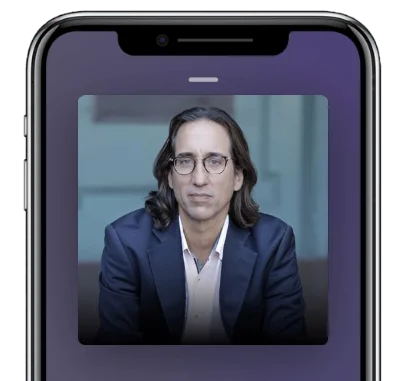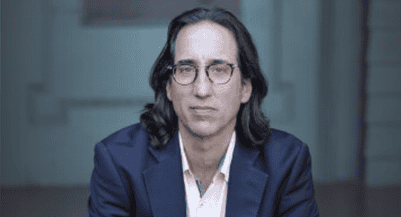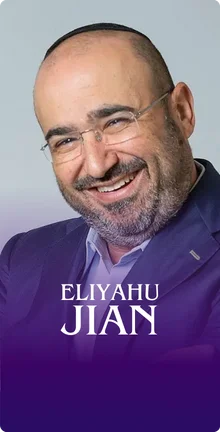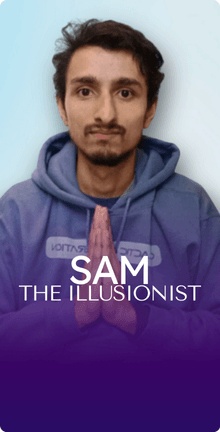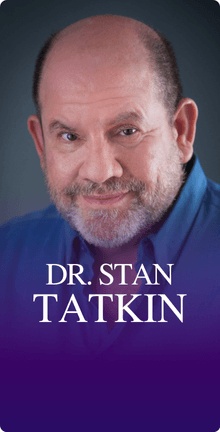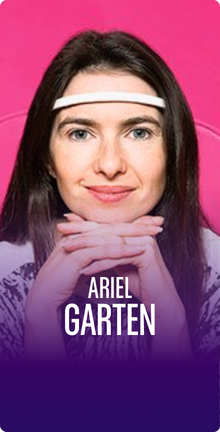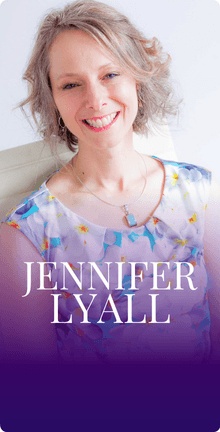In this Episode
- [01:51]Gregory Wendt shares his transformational epiphanies since childhood. He also explains the two pathways he recognizes in making conscious decisions.
- [06:50]Gregory talks about meditation and the most recent big insights he got from meditation.
- [13:54]What does Gregory think of the idea that we’re living in a simulation?
- [21:35]Stephan and Gregory discuss timelines, prompting Stephan to share a short story written by Andy Weir.
- [40:58]Why is it important to contemplate our existence, mortality and immortality, and nature of consciousness?
- [45:07]Gregory describes radical self-awareness and self-empowerment that is embedded in our timeline, waiting for our own self to discover.
- [55:09]Gregory recalls an experience of shared-death and explains how we can develop self-awareness.
Gregory, it’s so great to have you on the show.
Thank you, Stephan.
Let’s start by talking about what it is that inspires you. What epiphanies or awakenings have you had that have been transformational for you?
Since childhood, I’ve always been curious about the additional perspective and next view. Carl Sagan was one of my first gurus because he rigorously discussed the nature of the cosmos, how stars form, and our relationship to that. I was extremely interested in all those things when I was a child.
Everything is consciousness. The energy of intelligence that created the cosmos also created us. Every moment of every day and every thought is a creation of that consciousness. Share on XMy father took me to Carl Sagan’s lecture at Caltech in Pasadena. That’s when that we’re all a star stuff landed and that perspective of recognizing that there’s something deeper in us than our current story, perception, and civilization. So there’s always something to discover about a different way of seeing things that might inform now.
I never felt satisfied enough with the rationalization, or the reductionist explanation of things like that’s the answer and went back to sleep. I was always that curious pioneer spirit.
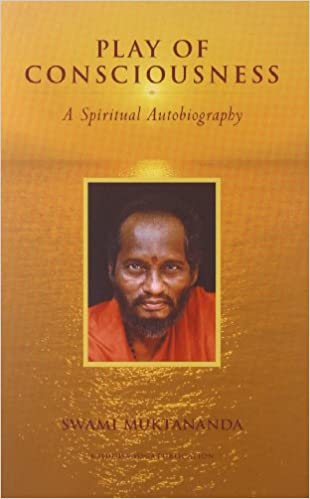
Carl Sagan started it off for you. I love that we’re all made of star stuff or stardust. But, I had an innovation or a corollary given me not long ago: we’re all made of God’s dust.
To go deeper into your question, that was the real epiphany and the real wake-up. When I was 14, my parents split up. It happened in the ’70s and ’80s. That was seeing the world outside the child’s mind in the early teens. What happened in that shift of perception of what this family is about, my role, or what made me see the challenge of watching something that I thought was stable and unchanging fall apart?
I recognized two pathways: (1) to let it take me down a path of trauma or (2) to lean into this and grow from it. So I made a conscious choice that I will grow from this.
My mother also has gone on her spiritual journey. She started going to different kinds of meetings. One of her first boyfriends was involved with a group now called landmark forum thinking and Alcoholics Anonymous. You can change your consciousness and your perspective of reality. Before that, the recognition that we could affect the way we think and change the fabric of reality and our own experience was not something I was aware of. That opened up the consciousness level.
Then, my mom started taking yoga. We lived in a suburb of Los Angeles called Palos Verdes, which had a small-town vibe. Going to the local yoga studio was unexpected then, but she went with her yoga teacher to see a spiritual teacher named Swami Muktananda with her yoga teacher. I wasn’t particularly interested then but curious about these ideas.
When I got his book from the library and read the idea that everything is consciousness—it’s the same thought that everything is God’s stuff—I’m like, “oh, that gives another foundation of reality.” That makes sense because it’s the unified field that Einstein indicated, and I always intuited that larger order of intelligence in the Carl Sagan material. After all, he always had that lofty perspective, even if he didn’t talk about it directly. So it gave some rigor and form to a cosmology that included my own interior experience woven in with the physicality of the cosmos.
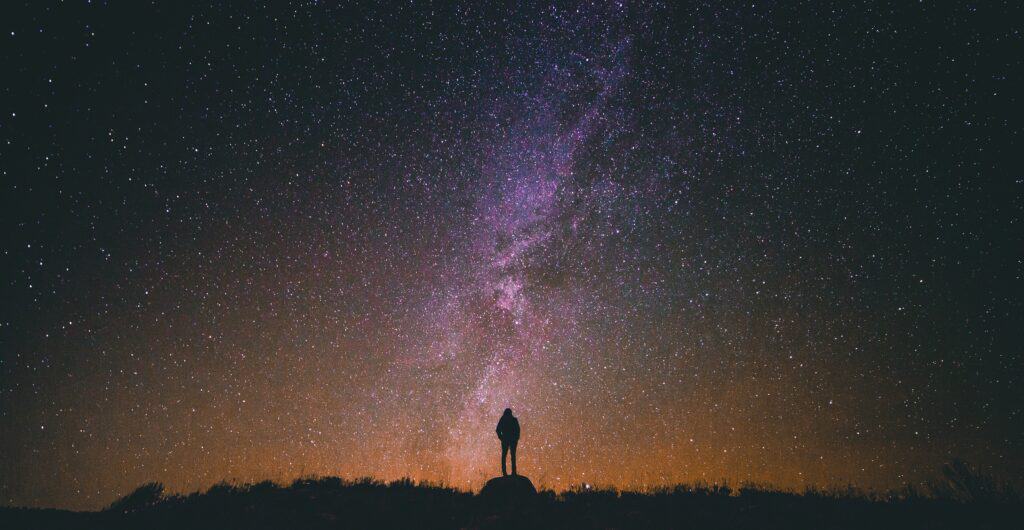
That changed my worldview. It changed my worldview and life dramatically because I started meditating when I was 16.
That’s very early to start meditating for most Westerners.
It became a net-like, “oh, I finally found something that makes sense to me.” In many wisdom traditions of any faith, whether Christian, Islam, Sufism, Esoteric Buddhism, Zen, or the Eastern tradition of India, a potency happens when a master has achieved a fully integrated state of the wisdom of enlightenment. Then, having those mirror neurons with a student awakens that perception capacity inside of us, but it’s transmitted in many different ways through words, presence, teachings, or something like that.
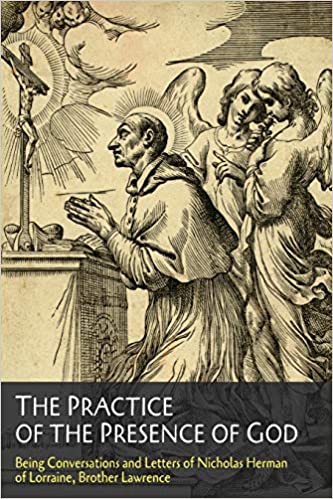
While reading his book, I had this all-expansive, unified experience that everything is consciousness. So it intrigued me that I went to the meditation centers as soon as possible and started attending their programs during high school. Then, I moved into that very meditation center in Santa Monica to go to college. It became my dorm when I was at UCLA.
How much time do you meditate per day? What are some of the most recent insights or epiphanies you’ve gained from meditating?
The idea is off the mat and the yoga seat from the first days of going to the meditation ashram. That ashram is the term for a residential meditation center but not necessarily monastic, where we all have to be in a monastic order. But people who were not monks and monks lived in that, and many of us went to jobs. We all had some occupation in our careers and our lives. I went to school.
Also, we ran a meditation center, we had a vegetarian restaurant, and many of us, as part of our living there, would do some work two or three hours a day. The implicit philosophy that was so engaging that grabbed me from day one was if we experience that everything is consciousness, we are that consciousness, that energy of intelligence that created the cosmos also made us. And there’s not any way to differentiate in the same way that a leaf cannot distinguish itself from a tree. The radical result is that every moment of every day and every thought is a creation of that consciousness. It’s just a matter of recognizing the nature of what you’re experiencing rather than achieving it. It’s about self-recognition.
The depth of the tradition is called the doctrine of self-recognition. That just rang so true for me. First, it grabbed my awareness and then the goal of practicing continuous meditation.
I read a great book called The Practice of the Presence of God from a guy named Brother Lawrence who wrote his letters in his journal—that was the book—from the 14th century about his days in a monastery where he’s always practicing this experience.
There’s also a book called The Way of a Pilgrim by a Russian mystic that touched me about continuously dipping my awareness and attention into the pool of cosmic consciousness, regardless of the activity.
Each form of meditation or practice becomes a mirror of our awareness.
That became the implicit teaching because one of the jobs I was assigned to do at the ashram was to wake up and chop onions for the rest of the day at 4 AM, but that happened to be the meditation time. So instead of meditating, my meditation was to stand in the kitchen, chop onions for 1–2 hours every morning, and then have breakfast and go off to school. That became my practice. If I’m meditating, I’m practicing for the rest of my day if I’m sitting on a mat. That’s the radical high bar I’ve held for myself and the radical teaching of full integration.
In the Zen tradition, there’s the idea of The 10 Oxherding. They’re little images of the Buddha going up to the mountain and coming down. In the last one, he’s free and fully conscious in the marketplace.
That’s the goal in the world. The idea of even in the world but not of it and all of that stuff is a duality that there’s nowhere to go when you see that everything is consciousness. There’s no word to get away from. God is all of this. Even the idea of God is almost an agnostic recognition that transcends any concept that there is a separate God and these ideas of different deities. Still, from that perspective, each of these forms that are inspirations for our meditation or practice become other expressions of ourselves, mirrors of our awareness, and different expressions of those various aspects of the divine consciousness or cosmos.
Going back to Carl Sagan, it makes sense that some vast intelligence created the DNA strands. However, to think that that happened through random events can be challenged from a very reductionist perspective because if you look at random chemical reactions, something like 7 billion years of reactions needs to happen for DNA to appear in randomness. We don’t have enough time on Earth for DNA to appear that way, so another explanation must exist.
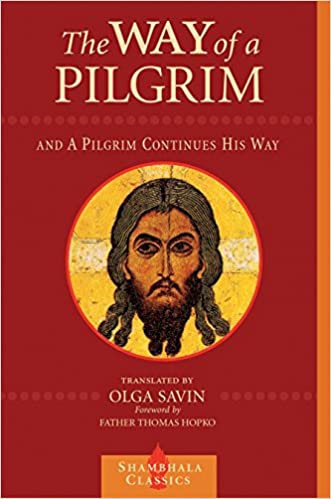
There’s some other intelligence whether DNA came in on a rock. All those things mean that whatever our reductionist narrative is about what’s happening, there’s always something more. So I always take it back to the expression of the intelligence of the cosmos that is recognized through the faith of science but often not practiced.
What do you think of this concept that we’re living in a simulation and that this whole thing is an illusion? Some names are applied to this illusion, like Maya or Saṃsāra. So I’m curious to hear your take on that.
The recognition that this is an illusion goes back, at least in the Eastern tradition in India. It goes back to the Vedas, oral teaching before they were written 5000 years ago. The concept of Brahma, all-consciousness, unified field as Einstein would call it, and then this experience that we’re having in physicality and energetic reality beyond the physical is an illusion and a product of Maya. Some of those teachings would say that that’s a product of our ignorance not to see God and project this idea of the world onto it.
The teaching is sometimes, “well, if you’re in a room made of everything of gold and you see a lamp, a chair, and an apple that is all made of gold, do you see gold, or do you see these objects?” So it’s just how you tune your perception and what you’re aware of. So that’s the teaching there.
But if we go to the radical implication that everything is consciousness, then even the illusion is made of consciousness. So if we sit for a moment and think about what I just said, there’s this thing that created this simulation called illusion in this field of information and awareness called the universe. So that experience is a product and a simulation of what that fabric is made of.
An illusion is made of consciousness.
In the same way, when you have a dream, you’re in this whole imaginary world that isn’t an illusion, but it’s all created in your mind and interior awareness. So that means we must challenge our idea that we are separate from the cosmos. But then, if we were separate from the cosmos, then what created this and is not this body-mind part of that projection in that simulation? If so, isn’t my body and mind made of the same fabric the simulation is for? So therefore, if we’re going to go to that level, then I am watching the simulation of my body, and this is an illusion, but I’m watching my hand.
Who is the one that knows that? Is that an illusion, or oh, the teachings in the yoga tradition stripping away all philosophical ideas, constructs, and beliefs? So eliminate all that for a moment and observe your interior experience along the lines we’re discussing.
You woke up this morning, Stephan. You remember dreaming this morning, right? You had a dream, maybe a little something. Before that, you were in a deep sleep. Maybe in the middle of the night, you got up to go to the toilet, and before that, you slept. You remember all that.
In the yoga tradition, we’re asked to identify with our awareness of who is watching all that and who’s keeping notes. That’s the knower. The only meditation practice is to meditate on that which requires no belief, thought, formula, or anything.
When our mind goes off, and we get caught back up in the illusion again, we bring the sense back to the knower.
To continue to bring our attention back to that, in the Zen meditation tradition, sometimes one of the practices in Zen is to sit quietly and be aware of the sensation of your breath on the upper lip. Inevitably, your mind does what your mind does. In the same way that the heart beats, the mind moves. Whenever your mind moves somewhere, the only practice is bringing the attention back here. In the same way, when our mind goes off, and we get caught back up in the illusion again, we bring the sense back to the knower. That’s the meditation, the recognition, and also the result.
There’s this cool concept. Jason Campbell, who makes meditation music and sells a lot of it on Amazon, said, especially if your mind is very busy or you’re trying to quiet it and meditate, if you have a question, wonder what your next thought will be. That tends to quiet the mind. So it’s a great hack.
That’s great. That’s one of the things that reminds me to pay attention to the space between the thoughts, or the initial step is maybe to pay attention to the space between your breaths because the recognition in that teaching is that something happens where your mind pauses for a micro-moment. If you can grab onto that similarly, those become three little tools or two little handles to get to this infinite. Once that muscle starts building, you can hold on to that tool regardless of what’s going on in your mind or the circumstances around you.
That’s the process and the goal. That’s the radical nonduality that if everything is made of the fabric of cosmic intelligence. So therefore, I am my body-mind, then right here, I can tap into the cosmic intelligence that was 45 billion light years away when the Big Bang happened. It’s right here because of its presence. That’s also the essence of all the wisdom traditions that you are that which made the cosmos, and you are the cosmos.
Everything is a simulation.
Another thing comes to heart: by just closing our eyes and tuning into the field of the interior. I’m looking at the ocean right now. Still, if I imagine, I close my eyes, and my interior goes into what is underneath the surface of that ocean. There’s a continuum in reality that goes to the stars and everything. There’s that one field from which the projection of matter becomes evident.
This idea that everything is a simulation is true, but the question remains: Who is the simulator? What agency and what role does our awareness have in that? If we continue to believe that I am separate from everything in the universe, then what is the nature of who I am? This is the question that is often left out in these questions. What am I if I’m separate from everything? To inquire into the nature of who that knower is the essence of the meditation tradition. That’s when the kingdom of God is within you or you know thyself. It’s all pointing toward that inner self-actualization.
I remember doing an exercise at a mastermind. I got a men’s brotherhood thing, Not METal. It was a different mastermind run by Neil Strauss, the author of The Game and The Truth.
This was probably a decade ago. I remember we were being yelled at by everybody else. We’re supposed to be on stage, one of us at a time. Everybody got a turn. Everybody in the audience is yelling, “who are you?” Whatever you said, their job was to say, “but who are you?” Because no answer would be sufficient. We would say, “I’m a husband, a father,” and all these different roles. “This is my business,” or “this is my job. This is my career.”

It’s not relevant to who you are as a soul. At the time, I didn’t get it. I hadn’t had my big awakening yet. I don’t think I had by that time. The first one was when I was in India. I didn’t know what to make of this. My answer was wrong.
Of course, now, in retrospect, it all made sense. That exercise was very powerful in extracting the essence of who I am or at least to get me thinking about or meditating on that afterward, like, “yeah, who am I? I’m not my personality. “
Your memories in this life rest in the cloud of consciousness. So when you have a near-death experience or epiphanies, you see the whole of you.
Now, I can see it very clearly. I’ve seen past lives and so forth, so my personality was very different in these different paths, how I look completely different, et cetera. So who am I?
I wondered how curious those two points are and how many different timelines exist. That’s one of the psychedelic revelations of these kinds of meta experiences. There’s not necessarily a linear sequence of the lifetimes that you’ve had.
Your memories in this life rest in this cloud of consciousness. So when you have a near-death experience or these epiphanies of meditation, you take a step back and see the whole of you, all your memories, sensations, and selves, because even in this lifetime, we have many different selves that we have been in.
Even Joe Dispenza talks about it in his book, Breaking the Habit of Being Yourself. But if you do that in sequence, then how many selves have you been? We don’t even need the concept of a past life to have this thought process. So I’m curious about the epiphany of the moment like now and imagining that those earlier selves are informed.
I read an autobiographical account of a farmer in Australia that started having all these cosmic experiences and being guided by nature, spirits, and cosmic beings through his life and other realms and dimensions. He writes all about it.
At one point, the teacher and the spiritual teacher said, “go back to yourself.” He saw himself as a farmer years ago and returned to himself and whatever he did. He was a farmer at that time, and spirit beings came to him to inspire him to think about nature.
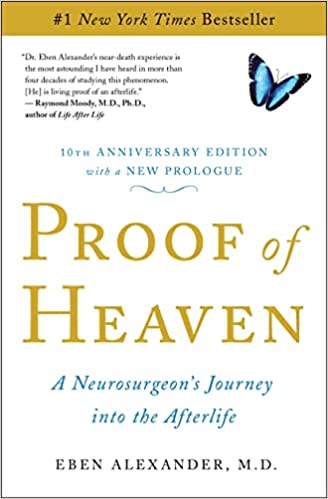
He turned his farm organic to consider the spirits of nature and all the life around him and to honor that larger circle of life. Later, he realized that the spirit that came to him at that moment was his self from a future perspective outside of time. That was just psychedelic.
I was sitting with a mentor when he was taking me through guided meditations, and my mind was blown. He guided me in some way like that. He said, “yeah, your future self was doing this to you right now.” I’m like, “wow, it just has these endless openings and awakenings to inform our day-to-day life.”
How we interpret and relate to reality is ever-changing. That’s how we change the fabric of reality. That inspires my day-to-day activities, you might say, that we can—through our awareness with a benevolent intention—change our lives and the world around us. I don’t know if it’s necessarily a change in the sense that we are coming from outside to change.
There’s an emergent metamorphosis or the idea that you probably heard about of an imaginal cell in the process that a caterpillar goes through to go into the cocoon, becomes an amorphous goo, and then all the cells of the caterpillar start flipping into becoming butterfly expression. Those are called imaginal cells, which are initially attacked by the caterpillar’s immune system until there’s some shift. That shift is a state change to recognize the coherence of that new order. It’s not an external organism. It’s a change. It just wasn’t recognized from an earlier personality.
Being kind to ourselves as we go through these changes can be informed by how nature works and how life all around us has that innate intelligence of collective metamorphosis on a consciousness level.
Something that you said just reminded me of a short story from 2009. It’s called The Egg, which Andy Weir wrote. Do you know this story?
My memory goes, yeah, but I don’t recall what it was, so please continue.
Here’s the gist of it. This is a short story, so it’s all fictional. You died, and God greets you. You are asking many questions about how my kids and wife are. “Are they okay? What’s happening?” The idea of it is you are going to reincarnate as another person on the planet.
Because you’re asking all these questions of God, He’s saying, “well, you were all of them. You were everybody.” It’s not until you’ve been everybody that you complete your journey here on Earth and escape the life, death, and rebirth cycle.
Here’s a little excerpt from the story. “How many times have I been reincarnated, then?”
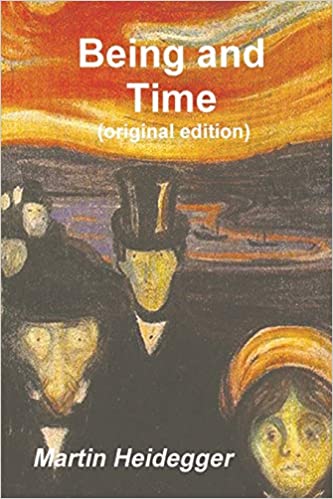
“Oh, lots. Lots and lots. And into lots of different lives. You’ll be a Chinese peasant girl in 540 AD this time.”
“Wait, what?” You stammered. “You’re sending me back in time?”
“Well, technically. Time, as you know it, only exists in your universe. Things are different where I come from.”
“Where you come from?” You said.
“Oh sure,” I explained, “I come from somewhere. Somewhere else. And there are others like me. I know you’ll want to know what it’s like there, but honestly, you wouldn’t understand.”
“Oh,” you said, a little letdown. “But wait. If I get reincarnated to other places in time, I could have interacted with myself at some point.”
“Sure. It happens all the time. And with both lives only aware of their lifespan, you don’t even know it’s happening.”
“So what’s the point of it all?”
“Seriously?” I asked. “Seriously? Are you asking me for the meaning of life? Isn’t that a little stereotypical?”
“Well, it’s a reasonable question,” you persisted.
I looked you in the eye. “The meaning of life, the reason I made this whole universe, is for you to mature.”
The meaning of life and the reason for the creation of the universe is for you to mature. Share on X“You mean mankind? You want us to mature?”
“No, just you. I made this whole universe for you. With each new life, you grow and mature and become a larger and greater intellect.”
“Just me? What about everyone else?”
“There is no one else,” I said. “In this universe, there’s just you and me.”
You stared blankly at me. “But all the people on earth.”
“All you. Different incarnations of you.”
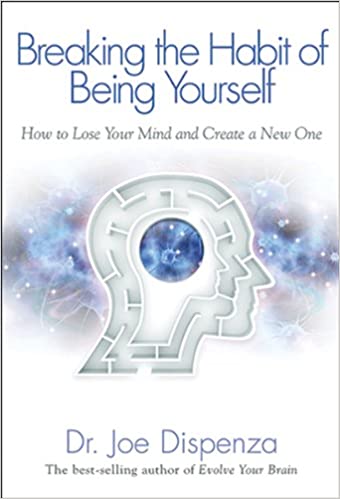
It goes on and on, but it’s a great story. There is some profound truth in it. There are many universes. This is my understanding of things. I’m not saying this is the truth because I don’t have that kind of power.
I understand that you are the pilot of your own universe as the observer. The multiverse has many slices or shards, each piloting one aspect or shard of it. What we believe and expect and the level of faith and certainty we have affects everything, not just what happens locally but globally.
I’m curious to hear what you have to say about having multiple timelines and multiple universes and having, as the observer, the ability to control the destiny of everything and everybody in that universe because you’re the observer. You collapse all infinite potential into what you observe and expect. Your characterizations of people collapse them from their infinite possibilities to what you expect. “Oh, this person is always a pain in my neck. Oh, look at that. They’re a pain in my neck yet again.” What’s your take on all this?
I’m glad that we had a conversation with myself about this. I was just reminded of Ramana Maharshi. When he was 15, he laid down and asked himself who am I over and over again, came to the same recognition, and ended up on a mountain that I did visit years ago called Arunachala in South India. He spent the rest of his life sitting there in meditation.
Two things come to mind from the many things that he said. One is there are no others that are more or less the same story. He said he gave teachings and talked to those who did not understand the silence. Whenever I feel the sense of that, it ripples through my consciousness. Not unlike a pebble in a pond, even though that was almost 20 years ago, but it’s eternal. It’s right here.
In response to the question before us, when we look at the karma report, also known as the news, all of the above and all the different points of view and perspectives and holding that as other aspects of myself alone is a gift for our time to have a little bit of compassion that we’re just all different aspects of the human experience trying to get our needs met. Recognize the patterns we’ve put into motion on this planet are reaching the edge of their efficacy.
I am grateful that we have these tools of consciousness that you and I have been talking about to realize that we’re not victims of these patterns. One thing that is often curious about when people say that we’re somehow a simulation is if we’re being programmed by bugs and from another dimension and that we’re somehow victims of this cosmic reality rather than seeing the root of our awareness as having full agency.
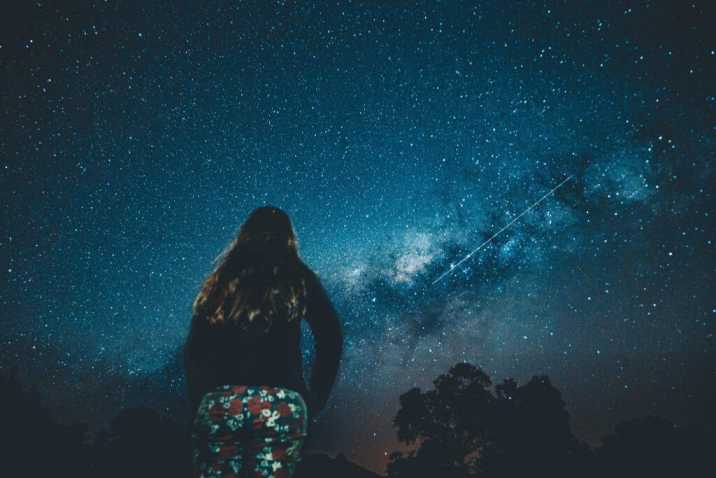
And we’re being punked.
Solarpunk is a cool thing to have that radical possibility of expression and looking at the different teachings I have encountered or people that are gurus, awakened, or like Ramana Maharshi. That man just sat in that one place for the rest of his life, and he informed the world. Here we are today. Sitting on a mountain in silence changed my life. This conversation may have changed because of the possibility not necessarily considered before the radical freedom of consciousness and our authorship and sovereignty.
We need to look at things from an interior.
If you look at the puzzle of the world’s situation in that which we see in the karma report, we might see that inside of the construct of time-space as our mind, scientism, and reductionist perspective in a very egoic mind point of view. Not necessarily saying it’s superior or inferior to have an ego point of view, but just operating from that limited perspective has its challenges. That’s what we can see are many of Earth’s problems.
By holding that, perhaps the way out of this box has instructions, but they’re written outside the box. So that means we need to look at things from an interior, seeing them all outside of time perspective to come back into our human form and the human foibles in the human karma report and be that consciousness that holds the possibilities that seem impossible from another point of view. Perhaps that’s the only way we’ve ever evolved as a human family, and that’s our moment.
Those who have seen the movie 2001 will recognize The Black Obelisk. But, to look into the depths of our soul is that moment of evolution that can happen yet again.
Looking at this moment on this planet, do we have the capacity to be that character in The Egg story and recognize that all that’s ever gone on here if there’s only me here? To sit back a moment and look at the perspective and how we can be more present, loving, and compassionate—for lack of a better word—but then to hold perspectives that seem outside of the realm of possibility and to feel the emergence just like learning from our teachers a caterpillar and a butterfly, the parable that said, the caterpillar thought life was over until it became a butterfly, or they just don’t recognize each other.
We can reconsider what is available in our consciousness and optimize ourselves.
That’s what we are now going through as a human species. We have to allow that that is possible in our worldview. Many of us are still unaware that that is available to us. This is an opportunity to reconsider what is available in our consciousness and optimize ourselves. To rethink what that phrase means gives us the pathway.
That’s pretty heady stuff, but it’s also important to contemplate your existence, mortality and immortality, the nature of consciousness, what makes you one, and what makes you separate. All that is pretty deep stuff. If you never take the time to contemplate the stuff, you’re just busy with daily life, and you never take the time to meditate, pray, or any of that, you’re missing out on the whole point.
Absolutely. It’s important to look at what you said—pretty heady stuff. I’ve read a lot of philosophy, and I always thought I should read Heidegger’s book, Being and Time. But unfortunately, I didn’t find much value in what I read because at least the part of the book I read separated me from the concept and made it an intellectual and logical formula game.
But the implicit premise you and I are discussing is not intellectualization. We’re not two philosophers arguing about different points of view, logic, and theories of nature and the universe. Instead, we are having a direct experience in our lives and sharing the insights that inform this experience and enrich our relationships with others.
There’s another universe of who you are that you didn’t even recognize.
I feel that if someone is feeling a little overwhelmed by these ideas, a little bit like, “oh, wow, that was just over my head,” or like you said, heady or just a philosophical masturbation discussion, perhaps all too true from one point of view, but if we sit down, really think about everything that you and I said, and reflect on the possibility of it, implications, and our own experience of it, for some of us, it will require rewiring everything we thought was so. But this discussion intends to rewire and inquire deeper because the beautiful gift of that question of what you were asked on stage—you may not have needed to do anything else—is who am I? Who are you?
Every moment, there’s another universe of who you are that you didn’t even recognize. That’s the ever-growing edge that’s rich and makes this moment-by-moment experience incredibly blissful. Even though we have moments of fear and pain, it’s a game.
It is a game.
The movie, The Matrix, is a documentary to some people in a manner that you can’t take it literally, but there’s the framework of how he saw it. But then there are all these other layers of it that there are still victims. So that’s not really what I’m going at, but you get the gist of the framework and the perspective.
Do you know the book, The Game of Life and How to Play It by Florence Scovel Shinn?
Yeah. That’s one of my favorite books ever.
It feels like Neo from The Matrix. This is from the 1920s. That book was so ahead of its time. It’s just incredible stuff. I’d never heard of her. It’s one of those things where it just showed up in my YouTube suggested videos one day, or maybe it was on the homepage of YouTube.
Death is just an extension of life. It's just a transition from physical form into spiritual form, and a transition to eternal life. Share on XThings are presented to us at the right time in the right way, which I was supposed to listen to. When I saw that on my YouTube list, I was like, “okay, I feel pulled to it.” It was incredible.
It’s one of the best books ever.
The audible version isn’t as good as the free version on YouTube. It was the Master Key Society.
I’m going to check that out. I loved that book. I’ve given it to several people. You pointed out something about her. I know each of us and everybody that is either listening or not listening to this conversation has in us that spark of full radical self-awareness and full radical self-empowerment in a cosmic universe.
Whatever language or form you use, every one of the faiths and belief systems has this somewhere embedded in it as a key or a code of discovering ourselves to recognize our greatness of ourselves. Every one of the originators of the great face, we’re already this, but then we are that too.
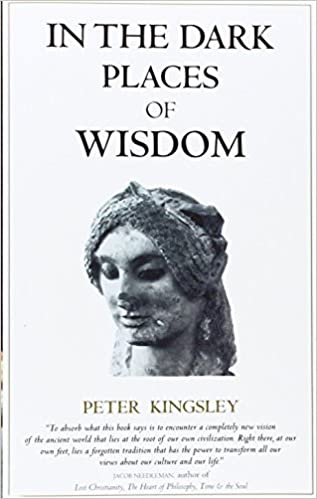
What I love about the ’20s and ’30s is that much of this happened in America and the world. So the esophageal society, Vedanta Society, hermetic traditions, Rosicrucians, revelatory Christian faiths like what Florence was talking about, or the Foursquare Church were trying to bring this awareness to light.
We’re in that Axial Age again. Are you familiar with the term Axial Age? It was around the era when many great religions were created years ago.
I read an essay that said that maybe this is something that will also inform eons to come by us wrestling with these cognitive challenges that have led us to the human problems that we’re having right now and the biosphere and all the other things that you can get on the karma report require as a gift because there’s no way out of this without changing our consciousness. Therefore, we painted ourselves into that corner, but the only way to go is to go in and transform.
In some of the communities you and I share with our friends, this is recognized. However, it’s still a narrative about me instead of about us and how the collective can change the collective experience for the benefit of all. That’s something that I find very promising about this time.
It’s not just promising. It’s incredible. What’s happening and what’s unfolding is miraculous. I’m so excited and grateful for what’s coming. It’s not like the end of the world, doom and gloom of dystopian sci-fi movies. It’s an incredible new Earth that we are about to experience. I’m very, very grateful.
I remember when the first teacher who got me into meditation, Swami Muktananda, would give interviews worldwide. At that time, several 100 meditation centers sprouted up worldwide from the tradition he brought from India. He took what were formerly secret teachings for only the initiates and gave them to people. It also embraced all the different faiths—not just the tradition he was from—and talked about all the different teachers worldwide.
Each of us has that spark of full radical self-awareness and self-empowerment in a cosmic universe.
If you don’t believe in God, put the word greatness, cosmic intelligence, light, or whatever eases you and inspires you. Then, he said, “meditate on yourself and honor yourself. Your God dwells within you as you.”
Have you heard the voice of God? Have you heard or seen a manifestation of God in your transcendental or transformational experiences, maybe in meditating, near-death experiences, or anything like that?
Yes. I remember having an experience. It happened in a meditation yoga class when I watched and read about near-death experiences. Still, I had such an experience of seeing the entire world as luminous consciousness after going through a sequence of experiences that felt like a near-death experience.
When I saw those shows about that or read about it, it was the same kinds of things that people said that they saw when they went to the other side and friends of mine who became spirit teachers because of what they learned from the other side. They were told to come back to their bodies to carry and teach.
To even say that there’s any other way to experience this is the reality in which we have a human experience. There are just different aspects of it and different aspects of experience. The experience of death is just an expanded life, the idea of having a body and then not having a body or just transition phases of the one real life we have.
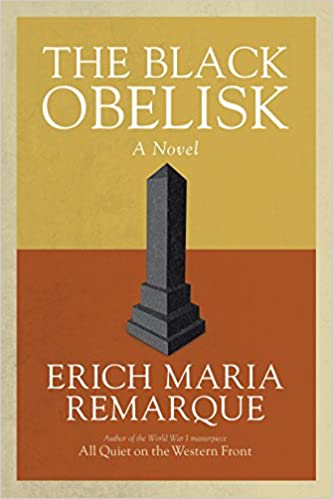
The question that has always helped me to navigate the embodied experience is to imagine myself maybe the moments or days after I pass, to imagine myself the days before I’m born, and to look at the unified perspective of the day before and the day after but as one place outside of time looking at now, how would that guide whatever it is that I’m facing or thinking about at the moment, and then make the moments perspective to help me shift out of my mind patterns, frustration, or whatever I’m navigating as my meditation to go back to your earlier question.
If I’m sitting in silence, that is also the exercise. If I’m not sitting on the toilet, in traffic, frustrated, or at a concert, it’s still the meditation I need to look at because that’s the exercise. So how can I more readily expand into the reality that my God dwells within me as me? How does that relate to now?
When they think of now, most people think of their five senses pulling in information and just being aware of what those sensations and stimuli are, but what if, instead, the present moment is only when you go inward?
I learned this from Sam The Illusionist. I forget which beings were speaking through him, but the present moment that we think of is the present moment. It’s just our five senses picking up information and being in that moment. We’re experiencing the past. That is in the past. What we’re doing right now, thinking it’s in the moment, is in the past. It’s an echo.
How do you get to the present if this is in the past? You shut off all your five senses and then go inward. That’s cool.
That’s rich.
Time is an illusion.
I am an illusion. I am real, and I’m an illusion at the same time. So it’s all about recognizing, yeah, this is real. I know this is real. But it’s my interpretation of it that may be in question.
I interviewed Dr. Eben Alexander. He’s the author of the number one New York Times best-selling book, Proof of Heaven. He had a near-death experience, which he wrote about in the book. He went from being a very pragmatic neurosurgeon to being deeply spiritual and writing other books afterward.
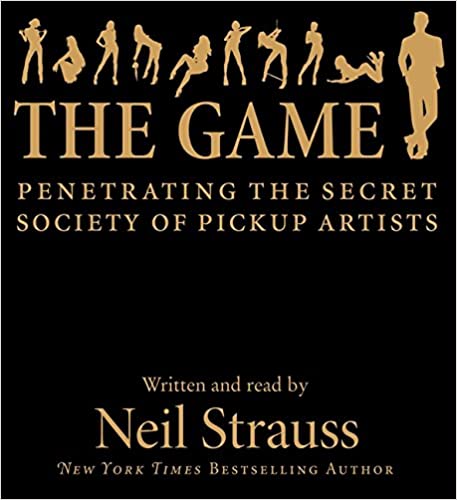
He mentioned something called a shared death experience. I had never heard of this before, but he said when you ride along someone else’s near-death experience or their death experience, which happens often. It seems to me that’s what happened with you when you were in that meditation.
The first experience that I had to answer your very first question was that my twin brother died before we came out of the womb. I’ve sometimes, but not always now, recognized that was that shared death experience. As you said, that is exactly what I felt is what happened. Do you know those stories of twins that were separated at birth, but they both like cheeseburgers with peanut butter on them or something like that? He was on the other side.
That gave me this perspective outside of time that has always informed me, “well, what am I here on earth for?” That’s where the story you told me happened with my childhood and the coming to the guru and meditation. It was like, “oh, I finally found something that made sense from my experience.” All these things you heard me share never felt like I was adopting a belief, but it gave me a thought process that helped me understand what I had experienced.
To have a language for it and some common community around these experiences that we’ve had is so valuable that we have this conversation because many of us, if not all, are in touch with all of this inside of ourselves. We just haven’t cultivated those psychic muscles.
To look into the depths of our souls is a moment that speaks to future possibilities of evolution. Share on XIt’s not even mental. This process of self-awareness is developing the capacity for where we direct our attention and the attention, projection, and creation of the universe that happens inside of our being because we are the very process that creates the universe inside of the mind, inside of Stephan and inside of you who are watching or listening to this. It’s all the same process that happens on a fractal level.
The cosmic process is happening simultaneously. There’s not only one subject. One awareness becomes all subjects, and there are as many subjects as we can imagine. How many humans are there? There are as many subjects. We have 40 trillion cells, so 3 trillion cells have 40 trillion things they do every second, but they’re all subjects. There are as many eyes as you can imagine. Yet, the Tantra expresses the possibility of radical omni-centricity that every center is simultaneously the center of the universe and itself, or every being is an expression of the cosmic. That Buddhist talk is with all those different beings.
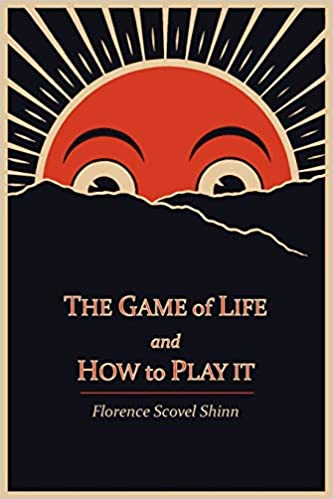
She has 72 million forms in that story. Still, she’s aware of herself taking on as many forms as you can imagine and not perturbed in the slightest by the differentiation and the duality that is created therein because she’s always aware of her original nature in the middle of that in the same way that we go through our lives. We’re lovers in one moment, bankers, traffic drivers, chefs, servants, kings, or what have you the next. It’s all me. Even though I play all these roles, I never get disturbed that I’m me. So that concept also helps us grasp the possibility of this awareness that lives in all of us. It’s time for humanity to have that perspective and form our day-to-day policies.
All the things that we’ve talked about, for most of us that are steeped in the Western tradition, Western philosophical, and religious frameworks, this sounds a little out-there and a little Buddhist in the sense of, oh, meditation in the present and watching everything as mind, yet this is not foreign to the Western tradition. It just has been forgotten. I’ve always wondered about that all these years of studying philosophy and the history of religion.
I read a book called In the Dark Places of Wisdom by Peter Kingsley about Plato’s teacher, Parmenides, who had this gift. He was one of many. That was a tradition of people going into meditation, the depths and the dark, and exploring these realms of consciousness.
He wrote a poem about meeting Persephone on the other side of death, returning to this day-to-day life, and having held the gifts, memories, and knowledge of beating the goddess of death. That was a symbolic representation of his awakening.
Everything that I learned, I learned from somebody else.
Many of those people who were in that tradition would inform policy decisions. The Oracle of Delphi was one of those women and people that went to the other side to bring it into the day-to-day life of society. This is so important for all of us in our jobs and business not to separate the spiritual on a Sunday to go into the business or be in a crypto trading meeting. So how does all of it live at once? How do we show up fully in our every moment with this gift for humanity and ourselves? Those are the questions you’ve evoked today.
Powerful. To piggyback on what you said—and then we’ll close out the episode—if you’re always seeking the Oracle of Delphi to get the answers from God. Still, you’re going through an intermediary, whether a psychic medium, guru, anybody, or even something, then you are giving your power away. It might sound a little extreme, but it’s idol worship from a Kabbalistic perspective and Jewish mysticism perspective.
If the only thing you get out of this whole conversation is to go direct and get the information, answers, and guidance you seek from within instead of from without, from others, or something or some system, I think that alone is worth this hour that you just listened to.
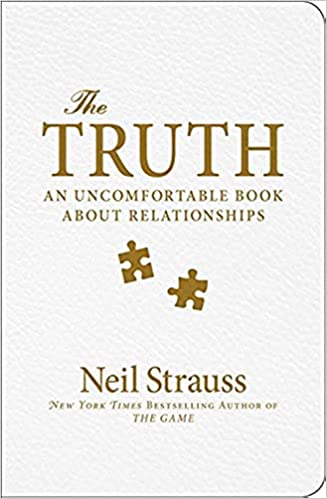
In some ways, everything I talk about, intellectual property in my work and ideas, I say everything that I learned, I learned from somebody else. You can’t learn math without going to a math teacher. You could, but then the book that was written has the math system.
In the same way, we talked about not making you or me the teacher for someone experiencing, listening, or watching this podcast, yet we’re saying the experience is real. The experience is tangibly available to everyone, so you don’t need to come to me, Stephan or any other person to have that experience.
Maybe it helps to have a person like us—not that we’re the teachers—but we’re like Florence Scovel Shinn saying it’s real, it’s possible, you’re not crazy, and you do not imagine things. So the purpose of these traditions, when properly interpreted in the same spirit that you and I are doing this, is to point to that reality and always direct us back to that reality. So we’re just naming it, sharing our experience, and inviting others to have their own.
Awesome. This was wonderful. Gregory, you’re a light in the world. Thank you for taking the time to have this important conversation. I’m grateful to you. If our listener or viewer wants to connect with you, where should they go?
LinkedIn is always easier, Gregory Wendt. My website, gregwendt.com, is an easy place to find me and my socials.
Awesome. Thank you so much. And thank you, listener. Make it a great week, go out there, and do something extraordinary. We’ll catch you in the next episode. I’m your host, Stephan Spencer, signing off.
Important Links
Connect with Gregory Wendt
Books
Businesses/Organizations
Film
People
Previous Get Yourself Optimized Episode

